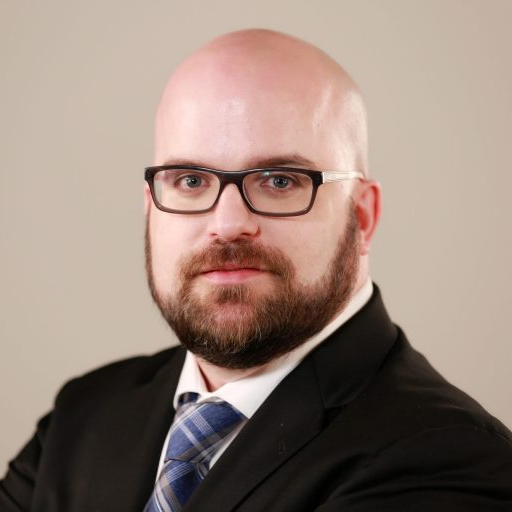“As expressed by one of the esteemed panelists at the most recent IPWatchdog SEP Masters event…, having Europe propose regulations impacting ‘foreign’ patents does not help in the effort to convince the World Trade Organization that China is overreaching.”
 In Part I of our year end summary of key developments regarding patents subject to a commitment to license on a Fair Reasonable and Non-Discriminatory (FRAND) or Reasonable and Non-Discriminatory (RAND) basis, we looked at various developments involving patent pools and reviewed some interesting damages awards and interlocutory decisions. In this installment, we consider a pair of antitrust cases dismissed in 2023 and explore what may come next on the policy front.
In Part I of our year end summary of key developments regarding patents subject to a commitment to license on a Fair Reasonable and Non-Discriminatory (FRAND) or Reasonable and Non-Discriminatory (RAND) basis, we looked at various developments involving patent pools and reviewed some interesting damages awards and interlocutory decisions. In this installment, we consider a pair of antitrust cases dismissed in 2023 and explore what may come next on the policy front.
Dismissed Suits
u-blox v. IDCC
Following on a case between the same parties in 2019, which featured an intervention by the U.S. Department of Justice’s antitrust division and ended in settlement, u-blox once again accused InterDigital of antitrust violations in January of 2023 stemming from InterDigital’s alleged refusal to offer u-blox a new license on FRAND terms (see: u-blox AG v. Interdigital Inc., Case No. 23-cv-0002-CAB-AHG (S.D. California)). This time around the DOJ did not intervene and u-blox’s antitrust claims were dismissed with prejudice, the Order Granting Defendants’ Motion to Dismiss providing as follows:
“In light of recent Ninth Circuit precedent, Plaintiffs have failed to allege anticompetitive harm in violation of section 2 of the Sherman Act. See FTC v. Qualcomm Inc., 969 F.3d 974, 996 (9th Cir. 2020) (“in order to make out a § 2 violation, the anticompetitive harm identified must be to competition itself, not merely competitors”). Plaintiffs also appear to have released any antitrust claims in their 2019 Patent Licensing Agreement with Defendants. [Doc. No. 36-4]. Thus, Plaintiffs’ cause of action under section 2 of the Sherman Act is hereby DISMISSED with prejudice.”
Judge Cathy Ann Bencivengo also granted InterDigital’s motion to dismiss u-blox’s breach of contract claim, but with leave to amend. Following u-blox’s filing of an amended complaint on August 25, InterDigital brought another motion to dismiss. u-blox’s case was voluntarily dismissed after an Order to Show Cause indicating that the court did not believe it held subject matter jurisdiction over the case given “the only issue before this Court is a state law breach of contract claim” and there was no diversity jurisdiction. With respect to the state law claims the Order further notes that “[a]lthough the breach of contract claim concerns a patent licensing agreement, the Court is not convinced that the dispute arises from the patent laws of the United States to satisfy §1388(a).”
In Re: Qualcomm Antitrust Litigation
Another antitrust case dismissed in 2023 was the class action suit filed against Qualcomm in the Northern District of California (In Re: Qualcomm Antitrust Litigation, Case No. 17-md-02773-JSC (N.D. California)). This case ran in parallel to the Federal Trade Commission’s (FTC) case against Qualcomm, the latter of which saw Judge Koh find Qualcomm had violated antitrust laws, only to be overturned by the Court of Appeals for the Ninth Circuit (to which Judge Koh was subsequently appointed). Judge Koh’s grant of class certification was also vacated by the Ninth Circuit and remanded with instructions for the district court to reconsider its conclusion in view of the Ninth Circuit’s decision in the FTC case.
Following remand, a second amended complaint was filed in response to which Qualcomm brought a motion to dismiss. The motion was granted in part and denied in part, leaving only two remaining claims: “(1) Plaintiffs’ allegations that Qualcomm’s exclusive chip supply contracts with device manufacturers violated California’s Cartwright Act, and (2) Plaintiffs’ claim that those same contracts constituted unfair competition under California’s Unfair Competition Law (“UCL”), California Business and Professions Code §17200.” Qualcomm followed up with a successful summary judgment motion on both fronts. A major problem for the plaintiffs, as explained in the CONCLUSION section of the Order Re: Motion for Summary Judgment, was that the plaintiffs wanted to shift theories after expert discovery had already closed:
“Litigation often involves strategic choices. This MDL proceeding is no different. Plaintiffs made a strategic choice when they chose to litigate liability solely on the “no license, no chips” theory of antitrust injury, rather than also offering expert testimony establishing antitrust injury under an exclusive dealing theory alone. They made another strategic choice when they chose to oppose summary judgment on the basis of a new expert report, even though the Court had expressly declined to reopen expert discovery. To relieve Plaintiffs of their choices under the circumstances of this case would violate Federal Rules of Civil Procedure 1, and would open the flood gates to prolonged do-over litigation. The Court, in its discretion, chooses not to do so. So, for the reasons stated above, Qualcomm’s motion for summary judgment is GRANTED.”
Policy
ITA, NIST, and USPTO Initiatives
The Commerce Department and United States Patent and Trademark Office (USPTO) released a notice titled “Joint ITA [International Trade Administration], NIST [National Institute of Standards and Technology], and USPTO Collaborative Initiative Regarding Standards; Notice of Public Listening Session and Request for Comments” (“Notice”). This initiative was in furtherance of the “United States Government National Standards Strategy for Critical and Emerging Technology” and is focused on “the intersection of standards and intellectual property.”
As an initial step, the government agencies scheduled a listening session in September and invited stakeholders to respond to twelve questions set forth in the Notice, though respondents were welcome to “address additional related topics.” Like the European Commissions’ proposed regulations, the Notice expresses concern for SMEs as reflected by the following questions (emphasis added):
1. Do the intellectual property rights policies of foreign jurisdictions threaten any of U.S. leadership in international standard setting, U.S. participation in international standard setting, and/or the growth of U.S. SMEs that rely on the ability to readily license standard essential patents?
6. Are there specific U.S. intellectual property laws or policies that inhibit growth of SMEs that rely on licensing and implementing standards?
7. Which, if any, actions would be advisable for the Department of Commerce to further explore regarding the interplay of intellectual property and standards, including but not limited to:
a. educational guidance to SMEs to become more involved in standards; …
For a summary of the testimony from the listening session, see the following articles prepared by IPWatchdog President and CEO, Gene Quinn (“Implementer Arguments at the USPTO Public Listening Session on Standards Ignore Business Realities”) and Editor-in-Chief, Eileen McDermott (“Deadline for Comments on USPTO RFC on Standards and IP Extended”).
The agencies also invited written comments from stakeholders, initially by September 29 later extending the deadline to November 6, 2023. All submitted comments, including those by Harfang IP, can be found here. Notably, despite the agencies’ emphasis on SME implementers very few, if any, weighed in. Fortunately, many large implementers did so on their behalf, perhaps out of their deep concern for those they may someday compete against. Hopefully, as noted above, the Avanci and Sisvel developments will convince the federal agencies that immediate legislative action, and additional policy statements, are not needed at this time.
OPPO v. Nokia
A very recent development potentially significantly impacting the licensing of patents subject to a commitment to license on a FRAND or RAND basis is the Chongqing No. 1 Intermediate People’s Court decision in OPPO v. Nokia (Case No.: (2021) Yu Min Chu 1232). Media reports indicate that the Chinese Court determined rates for China (Zone 2) to be half those for “Zone 1”. In view of this language / distinction, the Chinese Court appears to have not only determined rates for Nokia’s Chinese patents, but also its patents in the United States among other countries. Anticipating this result the Council for Innovation Promotion (C4IP), whose members include Andrei Iancu, David Kappos, Judge Paul Michel (Ret.), Judge Kathleen O’Malley (Ret.), and Frank Cullen, made the following statement in its comment responding to the aforementioned Notice:
“C4IP is similarly troubled by Chinese courts’ efforts to assert authority over global disputes well outside their jurisdictional reach. For example, injunctions prohibiting parties from pursuing litigation in other countries represent an impermissible overextension. More broadly, China is contemplating compulsory licensing frameworks with the same fundamental flaws as the EU approach. These efforts unilaterally impose licensing rules with extraterritorial impact, representing an inappropriate usurpation of authority. Sovereign jurisdictions like the United States should be allowed to tailor patent policies to their own national interests.”
In response to question 2 of the Notice, which asks “…what can the Department of Commerce do to mitigate the effects of any adverse foreign policies relating to intellectual property rights and standards”, Harfang IP also implicitly expressed its concern for such a development, commenting, in part, as follows:
“One thing the Department of Commerce can do to mitigate the effects of any adverse foreign policies / regulations relating to intellectual property rights and standards is ensure, possibly as a matter of treaty obligations, that such foreign policies / regulations do not apply to U.S. patents.”
A similar concern was espoused in a “DRAFT OPINION of the Committee on International Trade, for the Committee on Legal Affairs, on the Proposal for a Regulation of the European Parliament and of the Counsil on Standard essential patents…” (i.e. regarding the European Commissions’ proposed regulations of the licensing of patents subject to a commitment to license on a FRAND or RAND basis). Specifically, one amendment proposed by the DRAFT OPINION was to limit application of the regulations to “patents in force within the European Union…”. As expressed by one of the esteemed panelists at the most recent IPWatchdog SEP Masters event (David Kappos, we believe), having Europe propose regulations impacting “foreign” patents does not help in its effort to convince the World Trade Organization that China is overreaching. Hopefully the United States will not go down the same path as Europe and China and will continue to respect international comity.
Image Source: Deposit Photos
Author: may1985
Image ID: 595217896

![[IPWatchdog Logo]](https://ipwatchdog.com/wp-content/themes/IPWatchdog%20-%202023/assets/images/temp/logo-small@2x.png)


![[Advertisement]](https://ipwatchdog.com/wp-content/uploads/2024/04/UnitedLex-May-2-2024-sidebar-700x500-1.jpg)
![[Advertisement]](https://ipwatchdog.com/wp-content/uploads/2024/04/Artificial-Intelligence-2024-REPLAY-sidebar-700x500-corrected.jpg)
![[Advertisement]](https://ipwatchdog.com/wp-content/uploads/2024/04/Patent-Litigation-Masters-2024-sidebar-700x500-1.jpg)

![[Advertisement]](https://ipwatchdog.com/wp-content/uploads/2021/12/WEBINAR-336-x-280-px.png)
![[Advertisement]](https://ipwatchdog.com/wp-content/uploads/2021/12/2021-Patent-Practice-on-Demand-recorded-Feb-2021-336-x-280.jpg)
![[Advertisement]](https://ipwatchdog.com/wp-content/uploads/2021/12/Ad-4-The-Invent-Patent-System™.png)






Join the Discussion
No comments yet.